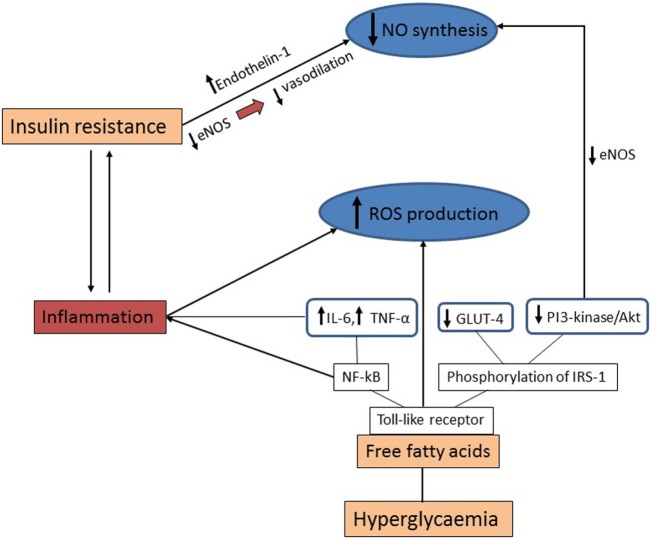Figure 2.
Mechanistic pathways for increased vascular inflammation in diabetes. Insulin resistance inhibits nitric oxide (NO) synthesis by reducing vasodilation via decreased activity of endothelial NO synthase (eNOS) together with increased production of vasoconstrictors such as endothelin-1. Hyperglycemia and increased levels of free fatty acids enhance the production of reactive oxygen species (ROS) and reduce NO synthesis via several cellular mechanisms. Free fatty acids bind to toll-like receptor which activates the NF-κB pathway and stimulates inflammation by increasing interleukin (IL)-6 and tumor necrosis factor (TNF)-α. Additionally, toll-like receptor stimulates the phosphorylation of insulin receptor substrate-1 (IRS-1) followed by downregulation of the PI3-kinase/Akt pathway and the glucose transporter GLUT-4, consequently resulting in reduction of NO production.

